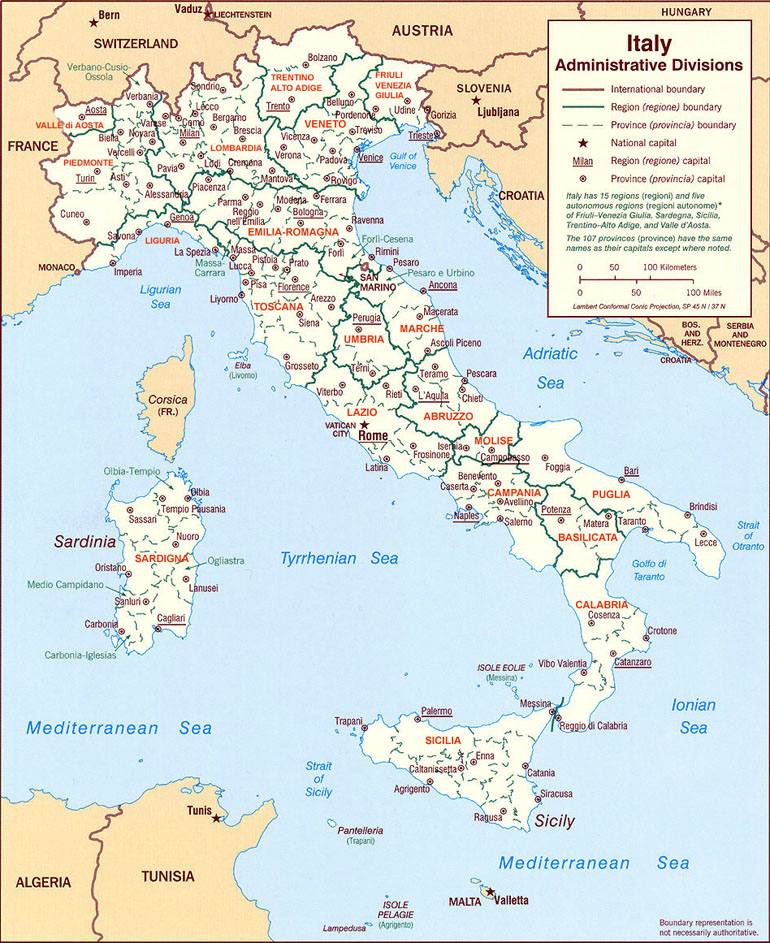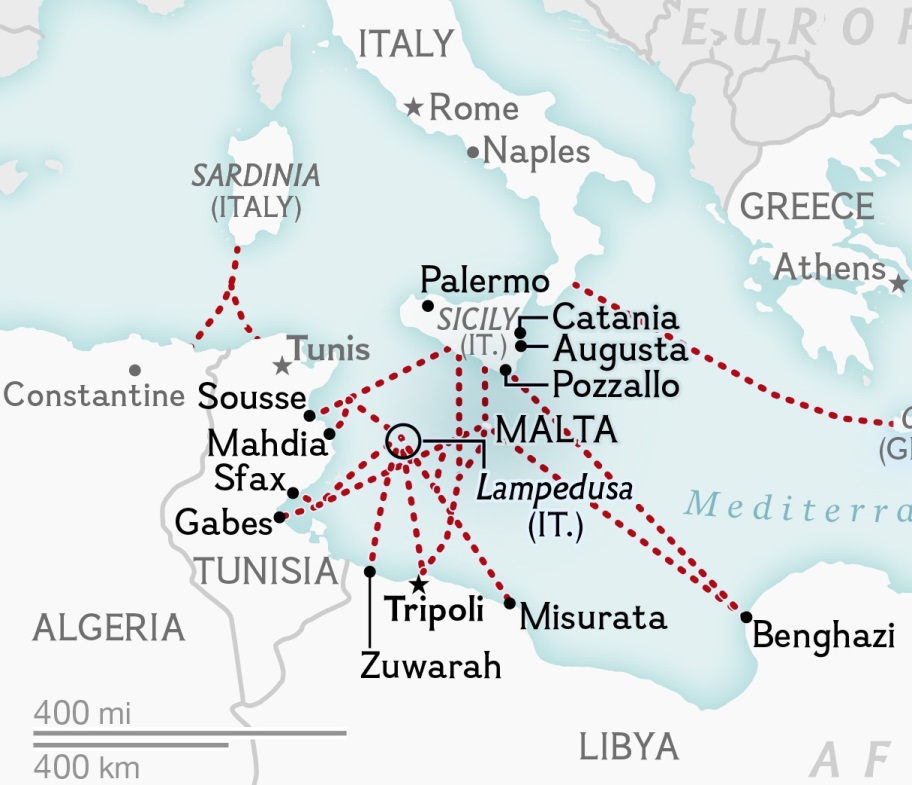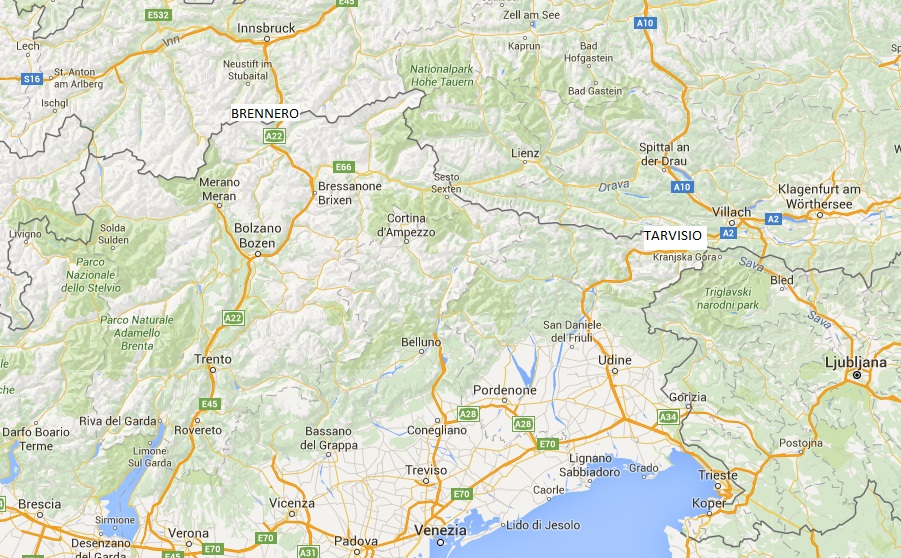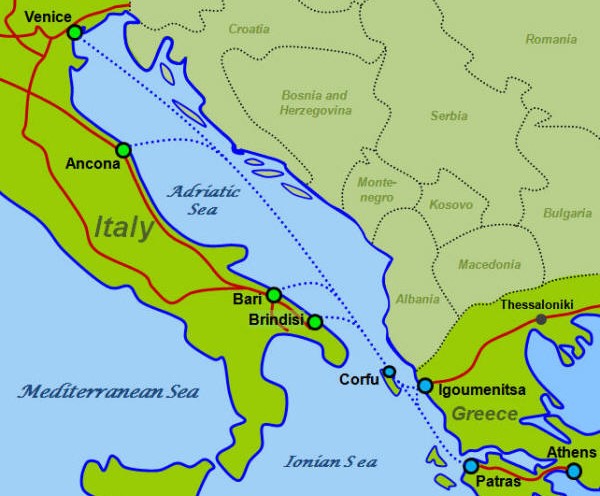last update: January 2016
Please click here to download the printing version of our welcome guite to Italy in english, version of February 2016. For italian version click here. Click here for the long version in english, version of January 2016. For italian version click here.
Please download here the symbol list from Refugee phrasebook.


2.1 YOU ARRIVED BY SEA FROM A NORTH AFRICAN COUNTRY

Many of the migrants arriving in Italy leave the countries of North Africa by boat and disembark in Sicily. When you arrive by sea from one of these countries you are normally taken to a reception centre or a “hotspot” (see end of section asylum for more information on new center called “hotspots”) in Sicily or in another region of South Italy (Calabria, Campania, Puglia). The identification procedures can happen directly at sea, after arriving at an Italian port or at the reception centre where you have been assigned to.
REMEMBER: the migrants who arrive on the coasts of South Italy are increasingly transferred to reception centres in Central and Northern Italy by bus from Italian or foreign companies. Even in these cases, just after the arrival, you have the right to receive first medical support, food, water, blankets and dry clothes and to receive all the information you need.
IMPORTANT! With the new regulations of the European Union, approved in October and November 2015, the identifications under Dublin Regulation 3 and the cases where migrants receive a “rejection decree” (decreto di respingimento”,a sheet which says they have to leave Italy within 7 days) are becoming increasingly common. This rejection decree is delivered immediately after arrival in Italy, without allowing the migrants to apply for asylum nor to explain their personal situation. As written above, the right to asylum is a fundamental right that cannot be violated, and everyone can apply for asylum at any time, by saying or writing down the sentence “I want to apply for asylum”, even in their native language. The police must receive this asylum application and be sure to photocopy or to take a picture of your application in front of someone (e.g. a volunteer or a member of an organisation), who can testify. If you need any help or you are denied the right to apply for asylum, contact the nearest reception centre, which you can find in section contacts.
2.2. YOU ARRIVED FROM AUSTRIA OR SLOVENIA (Balkan route)


In the last months, it has increased the number of migrants who arrived in Italy - mainly coming from Afghanistan and Pakistan - travelling along the so-called “Balkan route” (Greece, Macedonia, Bulgaria, Serbia, Croatia, Slovenia, Austria). The arrivals are usually from Austria and migrants cross the borders of the Brennero (South Tyrol, near Bolzano) and Tarvisio (Friuli Venezia Giulia). At the moment, there is no way of crossing the border between Slovenia and Croatia and, since December 2015, the Government of Slovenia has been building a wall of barbed wire on the west border between Croatia and Slovenia (near the Slovenian town Koper). Migrants’ main cities of arrival coming from the “Balkan route” are Udine, Trieste, Gorizia, Bolzano, Pordenone, but arrivals in the cities of the Veneto are also increasing (Verona, Venezia, Treviso).
When crossing the border between Austria and Italy or between Slovenia and Italy, you could be registered with the “simple” procedure, that is only by registration of your personal data and imprint of a single finger (thumb). In any case, read carefully the general informations of the asylum section.
One of the main problems is the difficulty of obtaining international protection (political asylum). Go to the central police station of the city where you are (called Questura)and say that you are an asylum seeker; you have the right to ask for international protection and if you are denied this possibility, insist or come back again to the Questura. There are also problems concerning the lack of accommodation for people applying for asylum in these cities. Many migrants have to live on the streets or in abandoned buildings. For information and help and to report violence, threats, refoulement and other violations of your rights you can find the contacts here.
IMPORTANT: if you are arriving in Italy via the Balkan route, it could be possible that your fingerprints have already been taken in another country of the European Union where the Dublin Regulation is active. If you decide to request international protection in Italy anyway, you will be issued a residence permit labelled “DUBLINO”. This means that it is necessary to determine the country responsible for your asylum application and, according to the Dublin Regulation, you could be sent back to the first country where your fingerprints were taken. Remember that Greece has been declared as insecure country and therefore any refoulement to Greece is illegal. For the whole of the duration of the residence permit labelled “DUBLINO”, you are entitled to enter the Italian reception system but you have no right to work.
For more information about requesting international protection and on the Dublin Regulation, go to the Dublin section.
2.3 YOU ARRIVED BY SEA FROM GREECE

If you arrived from the port of Patras or Igoumenitsa, you are now in one of the following cities: Brindisi, Bari, Ancona, Ravenna, Venezia or Trieste (see the map of Italy in this guide).
IMPORTANT: according to many investigations and judgements (such as those of the European Court of Human Rights of 2011 and 2014), Greece has been considered an “unsafe country”, because of many violations of migrants’ rights and the inadequate reception conditions. Any refoulement to Greece is illegal and represents a violation of the fundamental rights of migrants.
When you arrive in Italy from Greece, you have the right to apply for asylum and you can apply in your native language, orally or in writing, without risk of being sent back to Greece.
If you need any help just after arriving in Italy, contact the associations of Bari, Ancona, Venezia and Trieste listed in the contact section.
2.4. YOU ARRIVED FROM ANOTHER EUROPEAN UNION COUNTRY (“DUBLINATO”)
If this is the case, it means the country you went to sent you back to Italy because that country has proved that the first country in which you arrived was Italy, so according to the Dublin Regulation, Italy has to consider your asylum application. However, there are some exceptions, listed in the Dublin section.
IMPORTANT: remember that you can in any case appeal, with the help of a lawyer, to the “discretionary clauses” of the Dublin Regulation. These are the “sovereignty clause” and the “humanitarian clause”. Until your appeal has been examined and a final decision has been taken, you have the right to stay in the country where you wanted to apply for asylum, without being sent back to Italy. Contact the associations or lawyers in the European country where you are at the moment, so that they can help you bring an appeal against your refoulement to Italy. You can find contacts in these countries here.
7. TRAVELLING AROUND ITALY AND TO ANOTHER EUROPEAN COUNTRY
IN ITALY
In Italy, there are the following types of trains:
R: Regional: stops in many stations on the route, cheapest option
IC: Intercity: only a few stops on the route, more expensive
EC: Eurocity: international trains, police checks on board when crossing the border and at the first station across borders.
For schedules and exact prices, go to the website www.trenitalia.it or call the number 892021.
Here you can find some information about the connections between the main Italian cities:
|
DEPARTURE CITY |
ARRIVAL CITY |
NUMBER OF DAILY TRAINS |
|
PRICE (euro)
|
|
CATANIA |
ROMA |
4 daily trains |
18:34 |
from 39 to 69 |
|
CATANIA |
MILANO |
1 daily train |
10:50(day after) |
from 69 to 110 |
|
ROMA |
MILANO |
4 daily trains |
14:42 |
from 19 to 51 |
|
ROMA
ROMA |
BOLOGNA
FIRENZE |
4 daily trains (same departure times of trains from Rome to Milan) |
from 19 to 37,5 |
|
|
ROMA |
VENEZIA |
3 daily trains |
16:19 |
from 29 to 54 |
|
UDINE |
MILANO |
2 daily trains |
9:55 |
from 29 to 51 |
|
UDINE |
VENEZIA |
Every hour from 4:31 to 22:07 |
11,65 |
|
|
TRIESTE |
MILANO |
3 daily trains |
10:00 |
from 29 to 53,5 |
|
TRIESTE |
VENEZIA |
Every hour from 5:15 to 22:06 |
from 12 to 18 |
|
|
MILANO |
GENOVA |
Every hour from 6:10 to 21:10 |
from 9 to 20,5 |
|
|
MILANO |
VERONA |
Every hour from 6:25 to 22:25 |
from 12 to 21 |
|
|
VERONA |
MILANO |
Every hour from 5:40 to 21:40 |
from 12 to 21 |
|
|
VENEZIA |
MILANO |
Every hour from 5:52 to 20:02 |
from 19 to 37,5 |
|
BUSES FROM AND TO THE MAIN ITALIAN CITIES
For schedules and exact prices, contact the following companies:
- BALTOUR/EUROLINES: www.baltour.it - phone 0039 (0)861 1991900
email: info@baltour.it (ticket office in Rome at Largo Guido Mazzoni - Biglietteria B)
- SALEMI (Sicily): www.autoservizisalemi.it - phone 0039 (0)923-9811020
- SAIS AUTOLINEE (Sicily): www.saisautolinee.it toll-free number 800211020 - from mobile phone 199244141
General information about the main connection between Catania, Rome and Milan:
|
CATANIA |
ROME
|
3 buses a day |
40 - 43 euro |
SAIS AUTOLINEE AND SALEMI |
|
CATANIA |
MILAN |
3 buses a day |
69 - 78 euro |
BALTOUR/SALEMI |
|
ROME |
MILAN |
4 buses a day |
19 - 48 euro |
BALTOUR |
GOING TO ANOTHER EUROPEAN COUNTRY
BY TRAIN
GENERAL RECOMMENDATION FOR TRAIN JOURNEYS TO THE BORDERS
- In the main stations of the major cities there is always a Railway Police Station; in these stations travellers are usually subject to daily checks, either in the station areas or before getting to the platform;
- The smaller stations are usually served by the same trains as in the main stations;
- Always have the ticket with you when travelling: ticket inspectors of the State Railways are public officers, they can call the police if there is any irregularity and can ask to check your documents;
- Trains departing from border towns are subject to frequent controls from the departure station along the way up to destination;
- In every border railway station there is a border police station, which checks the documents and monitors the route.
SWITZERLAND

Trains to Switzerland (the first city in Switzerland is Chiasso) leave from Milan Central Station.. From Milan Central to Lugano and Zurich (Switzerland) there are 8 trains a day from 8:25 until 20:25 (from 19 euro). From Milan Central to Bern and Basel there are 3 trains a day (from 29 euro).
For schedules and exact prices contact:
- Trenitalia: www.trenitalia.it- phone 892021
- Trenord www.trenord.it – phone 0039 (0)2-72494949
- FFS (Swiss railways): www.ffs.ch - phone 0900300300
AUSTRIA AND GERMANY

From Verona (Porta Nuova) there are 6 trains to Austria (Innsbruck) and Germany daily (price from 39 euros).
There are also some night trains:
Milan Central - Verona - Trento - Bolzano - Innsbruck (Austria) – Vienna - Munich (Germany) (prices from 59 euros)
Roma Termini - Florence - Bologna - Verona - Trento - Bolzano - Innsbruck (Austria) - Munich (Germany) (prices from 59 euros)
Roma Termini - Florence - Bologna - Venezia - Tarvisio - Klagenfurt (Austria) - Villach (Austria) - Vienna (Austria) - Munich (Germany) (prices from 95 euro)
From the Venezia-Mestre train station there are trains to Vienna (Austria) and to Innsbruck (Austria) - Munich (Germany) (prices from 95 euro)
For schedules and exact prices contact:
- Trenitalia: www.trenitalia.it- phone 892021
- OBB (Austria railways): www.obb-italia.com - phone +43 (0)5 1717 (English/German), +39 02 3041 5023 (Italian)
FRANCE

From Turin (Lingotto station): train to Torino-Cuneo and then Cuneo-Ventimiglia to the French stations of Vievola-Tende- La Brigue- ST Damals de Tende - Fontan Saorge-Bresil sur Roja.
From Genoa (Piazza Principe station): trains R, IC, EC to Ventimiglia; trains EC “Thello” to Nice and Marseille (France);
From Genoa (Brignole station): trains R and IC to Ventimiglia
From Savona: trains R, IC, EC to Ventimiglia arriving from Genoa and Turin; trains EC “Thello” to Niece Ville and Marseille (France)
From Ventimiglia to Nice: regional trains (R) run by French railways SNCF, departing from Ventimiglia to Cannes, Nice ville and Grasse.
“Thello” trains from Milan Central to Nice and Marseille via Turin, Genoa and Ventimiglia (prices from 30 euros)
and from Venezia-Mestre to Dijon and Paris (France) via Padova, Vicenza, Verona, Brescia and Milan (prices from 67 euros)
For schedules and exact prices contact:
- Trenitalia: www.trenitalia.it- phone 892021
- SNCF (French railways): www.sncf.com - phone 0039 (0)2 40326435
BY BUS
There are many buses connecting the main Italian cities with Germany, France, Austria and Switzerland. Some of the most frequent routes are: ROME-PARIS, ROME-MUNICH, MILAN-PARIS, MILAN-VIENNA, MILAN-ZURICH, VENICE-PARIS, MILAN-BASEL, VENICE-VIENNA, MILAN-MUNICH, VENICE-MUNICH, GENOA-MARSEILLES
For schedules and exact prices contact the following transport companies:
- BALTOUR/EUROLINES: www.eurolines.itwww.baltour.it phone 0039 (0)861 1991900 - email: info@baltour.it (ticket office in Rome at Largo Guido Mazzoni - Biglietteria B)
8. GLOSSARY
Please download here the symbol list from Refugee phrasebook.
ASYLUM SEEKER: (RICHIEDENTE ASILO): a person who presents an asylum application for the recognition of refugee status, according to the Geneva Convention of 1951. The asylum request can be made by any person and at any time.
MINISTRY OF INTERIOR (MINISTERO DELL'INTERNO): is the central administration of the state which has primary authority on issues of immigration and asylum.
PREFECTURE (PREFETTURA): is the administrative body of the Ministry of Interiorr, the decentralised Office of Internal Affairs of the province and the Government's territorial Office.
POLICE HEADQUARTER (QUESTURA): is the administrative body that manages and organises the activities of the police in each province. Within each police station, there is a foreign office that deals with the paperwork of immigrants and asylum seekers.
TERRITORIAL COMMISSIONS (COMMISSIONE TERRITORIALE) FOR THE RECOGNITION OF INTERNATIONAL PROTECTION : has the task of evaluating the applications for recognition of international protection status.
RESIDENCE PERMIT (PERMESSO DI SOGGIORNO): is the document that authorises you to stay legally on Italian territory.
UNACCOMPANIED MINOR (MINORE NON ACCOMPAGNATO): A person who is under eighteen years of age, who is not married and is located in a European country, unaccompanied by a responsible adult who is older than eighteen years..
RELATIVE (FAMILIARE): your husband/wife or your partner (partner is not recognised in every country); your children who are not married and are dependent on you. If you are a minor and you are not married, your father, your mother and the legal “guardian” are also considered members of the family.
“CEDOLINO”: a document in the form of a strip of card with a photo that is given to the applicant who has attended the police station to apply for asylum and to have fingerprints taken. This document details successive appointments with the police.
EURODAC: Database that can be accessed by all European States in which the fingerprints of applicants for asylum and certain categories of irregular migrants are stored.
DUBLIN REGULATION (REGOLAMENTO DUBLINO): European regulation that establishes the state responsible for examining an asylum application.
VERBALIZATION (VERBALIZZAZIONE): phase of the asylum procedure where at the police headquarters the form 3 is filled out (written questions asking for information about the applicant, his/her family and the way you had taken to arrive in Italy.
SCHENGEN AREA (SPAZIO SCHENGEN): free circulation area that includes a group of 26 European countries, including 22 EU Member States. 22 European states of the 28 take part with the exception of Britain and Ireland (opt-out), Cyprus, Croatia, Bulgaria and Romania. In addition: Iceland, Liechtenstein Norway and Switzerland.
ITALIAN-ENGLISH DICTIONARY AND PHRASEBOOK
|
Introduce yourself |
|||
|
Ciao/Salve |
Hello |
Buongiorno |
Good morning |
|
Buonasera |
Good evening |
Arrivederci |
Good bye |
|
Scusa |
Excuse me |
Per favore |
Please |
|
Grazie |
Thank you |
Prego |
You are welcome |
|
Il mio nome è... |
My name is … |
Il mio cognome è... |
My last name is... |
|
Ho …. anni |
I am …. old |
Vengo da... |
I'm from... |
|
Family |
|||
|
Fratello |
Brother |
Sorella |
Sister |
|
Padre |
Father |
Madre |
Mother |
|
Figlio |
Son |
Figlia |
Daughter |
|
Marito |
Husband |
Moglie |
Wife |
|
Nonno |
Grandfather |
Nonna |
Grandmother |
|
Zio |
Uncle |
Zia |
Aunt |
|
Cugino |
Cousin (male) |
Cugina |
Cousin (female) |
|
Mio/a... vive a ... |
My … lives in ... |
voglio chiamare mio/a.. |
I would like to call my ... |
|
Asking for and giving information |
|||
|
Dove mi trovo? |
Where am I? |
C'è un traduttore? |
Is there a translator? |
|
C'è un avvocato? |
Is there a lawyer? |
Non capisco |
I don't understand |
|
Puoi scrivermelo? |
Can you write it down for me? |
Parli …. ? |
Do you speak … ? |
|
Non parlo italiano |
I don't speak Italian |
Ho bisogno di … |
I need to … |
|
Quanto tempo starò in questo posto? |
For how long I will stay in this place? |
Voglio la traduzione di questo documento |
I would like to see the translation of this document |
|
Non lo so |
I don't know |
Non ho soldi |
I have no money |
|
Dove posso mangiare? |
Where can I eat? |
Dove posso dormire? |
Where may I sleep? |
|
Avete acqua? |
Do you have water? |
Dov'è il bagno? |
Where's the bathroom? |
|
Dov'è la stazione dei treni? |
Where is the train station? |
Dov'è la stazione degli autobus? |
Where is the bus station? |
|
Dove posso comprare il biglietto? |
Where can I buy the ticket? |
Quanto costa il biglietto? |
How much is the ticket? |
|
Dove posso fare una doccia? |
Where can I take a shower? |
Dove posso chiedere aiuto e informazioni? |
Where can I get help and information? |
|
Posso fare una telefonata? |
Can I make a phone-call? |
Dove posso comprare una scheda telefonica? |
Where can I buy a phone card? |
|
Health |
|||
|
Ho bisogno di un medico |
I need a doctor |
Devo andare in ospedale |
I have to go to the hospital |
|
Ho bisogno di una medicina |
I need a medicine |
Sono ferito |
I'm hurt |
|
Mi fa male qui |
I feel pain here |
Il dolore è forte |
The pain is bad |
|
Sono malato |
I am ill |
Ho la febbre |
I have a fever |
|
Sono allergico a... |
I am allergic to ... |
Mi gira la testa |
My head is spinning |
|
Sono stato picchiato |
I was beaten |
Ho mal di testa |
I have a headache |
|
Ho mal di gola |
I have sore throat |
Non respiro bene |
I have problems breathing |
|
Ho problemi alla pelle |
I have skin problems |
Ho mal di denti |
I have toothache |
|
Soffro di asma |
I am asthmatic |
Soffro di bronchite |
I suffer from bronchitis |
|
Potrei essere incinta |
I may be pregnant |
Ho perdite di sangue |
I have heavy bleeding |
|
Ho subito violenza sessuale |
I am a victim of sexual violence |
Ho la tubercolosi |
I have tuberculosis |
|
Ho la malaria |
I have malaria |
Ho la scabbia |
I have scabies |
|
Clothes and other things |
|||
|
Scarpe |
Shoes |
Maglione |
Sweater |
|
Maglietta |
T-shirt |
Pantaloni |
Pants |
|
Calze |
Socks |
Mutande |
Underwear |
|
Giubbotto |
Vest |
Cappello |
Hat |
|
Guanti |
Gloves |
Sciarpa |
Scarf |
|
Letto |
Bed |
Sacco a pelo |
Sleeping bag |
|
Coperte |
Blankets |
Cuscino |
Pillow |
|
Cellulare |
Cell phone |
Batteria |
Battery |
|
Computer |
Computer |
Connessione internet |
Internet connection |
|
Torcia |
Torch |
Sapone |
Soap |
|
Spazzolino |
Toothbrush |
Dentifricio |
Toothpaste |
|
stanco |
tired |
scomodo |
uncomfortable |
|
lontano |
Far away |
vicino |
near |
|
grande |
large |
piccolo |
small |
|
economico |
cheap |
costoso |
expensive |
|
sporco |
dirty |
pulito |
clean |
|
caldo |
hot |
freddo |
cold |
|
nuovo |
new |
vecchio |
old |
|
Directions, places and transportation |
|||
|
Nord |
North |
Sud |
South |
|
Ovest |
West |
Est |
Est |
|
Sinistra |
Left |
Destra |
Right |
|
Dentro |
Inside |
Fuori |
Outside |
|
Avanti |
Forward |
Indietro |
Back |
|
Ospedale |
Hospital |
Ufficio Postale |
Post Office |
|
Questura |
Police Headquarters |
Prefettura |
Prefecture |
|
Porto |
Port |
Aeroporto |
Airport |
|
Autobus |
Bus |
Treno |
Train |
|
Nave |
Ship |
Taxi |
Taxi |
|
Documents and political asylum |
|||
|
Ho un documento |
I have a document |
Non ho un documento |
I don’t have a document |
|
Ho perso il mio documento |
I lost my document |
Mi hanno rubato il mio documento |
They stole my document |
|
passaporto |
passport |
Permesso di soggiorno |
Residence permit |
|
Attestato/certificato |
Certificate |
avvocato |
Lawyer |
|
Richiesta d'asilo |
Asylum application |
Ricorso/appello |
Petition/appeal |
|
Voglio chiedere asilo politico |
I want to claim political asylum |
Non voglio contattare la mia ambasciata |
I don't want to contact my Embassy |
|
espulsione |
expulsion |
arresto |
arrest |
|
persecuzione |
persecution |
violenze |
violence |
|
guerra |
war |
crimini |
crimes |
|
minacce |
threats |
torture |
torture |
|
Arruolamento forzato |
Forced recruitment |
Conflitti tribali/etnici |
Tribal/ethnic conflicts |
|
Gruppi militari |
Military groups |
Polizia di frontiera |
Border police |
|
Diritti umani |
Human rights |
leggi |
laws |
|
Vità |
Life |
Libertà |
Liberty |
|
Non posso tornare al mio Paese |
I can't go back to my country |
Nel Paese da cui provengo sono in pericolo |
In the country I come from I would be in danger |
|
Sono stato/a vittima di discriminazioni... |
I have been a victim of discrimination ... |
Perchè sono di un gruppo etnico e sociale |
Because I am in an ethnic group |
|
Per il colore della pelle |
Because of my skin colour |
Per la mia religione |
Because of my religion |
|
Per le mie opinioni politiche |
Because of my political views |
Per il mio orientamento sessuale |
Because of my sexual orientation |
6. CONTACTS: You can find a complete list of contacts here.
